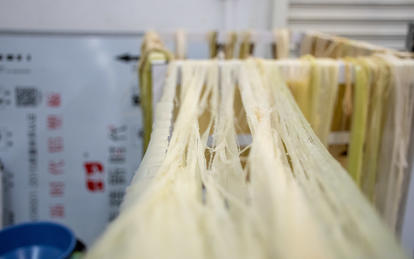Supported by the UNDP GEF Small Grants Programme, this hands-on training initiative is building capacity for a green, circular future in Mauritius.

In a collaborative effort to tackle plastic pollution and promote sustainable livelihoods and circular economy, a series of hands-on training sessions was launched on 14 April 2025 under the UNDP Global Environment Facility Small Grants Programme (GEF SGP)-funded project “Enhancing the Livelihood of Vulnerable Groups through Circular Economy and Development of Green Products as Replacement for Single-Use Plastics.”
The initiative runs from 14 April to the end of May and is facilitated by researchers from the University of Mauritius. Led by Professor Haree Ramasawmy, the training aims to strengthen local capacity and equip communities with green skills that support a just transition to a circular economy. Hosted at the Faculty of Engineering of the institution, each one-day session brings together a diverse group of 18 to 20 participants, including identified project beneficiaries, members of small and medium enterprises (SMEs), cooperative associations and other stakeholders committed to sustainable development.
The sessions open with an introduction to the key concepts of circular economy practices, resource efficiency, and the importance of replacing environmentally harmful materials such as single-use plastics with locally sourced, biodegradable alternatives.
The second part of the training takes place in the Non-Woven Laboratory, where participants take part in live demonstrations and gain hands-on experience using machinery developed by researchers under the project. These include a fibre extracting machine that processes banana waste (and other biomass) into usable fibre, a pulping machine that transforms natural fibres into pulp, and a moulding machine capable of shaping the pulp into eco-friendly packaging or product components. These include a diverse range of biodegradable products such as plant pots, seedling trays, takeaway food containers, protective packaging inserts and custom-branded sustainable packaging. Each item serves as an innovative and eco-friendly alternative to conventional plastics, contributing to reduced environmental harm and supporting the transition to a greener, circular economy. These machines will later be distributed to 10 selected direct beneficiaries in Mauritius and Rodrigues.
In the context of the upcoming Plastic Treaty, the initiative features under the UNDP GEF SGP Plastic Innovation Programme and is aligned with broader national and global goals on sustainable production and consumption, waste reduction, and inclusive green growth. It also contributes to Mauritius’ ongoing efforts to reduce plastic waste and transition toward circular models of development that leave no one behind.
Through this initiative, UNDP-GEF-SGP and the University of Mauritius are helping to equip beneficiaries with the tools, technology, and knowledge needed to become active players in the green economy. This training is not only a step towards reducing plastic pollution, but also a step towards empowering people, protecting the planet and unlocking new pathways for sustainable development.

 Locations
Locations






